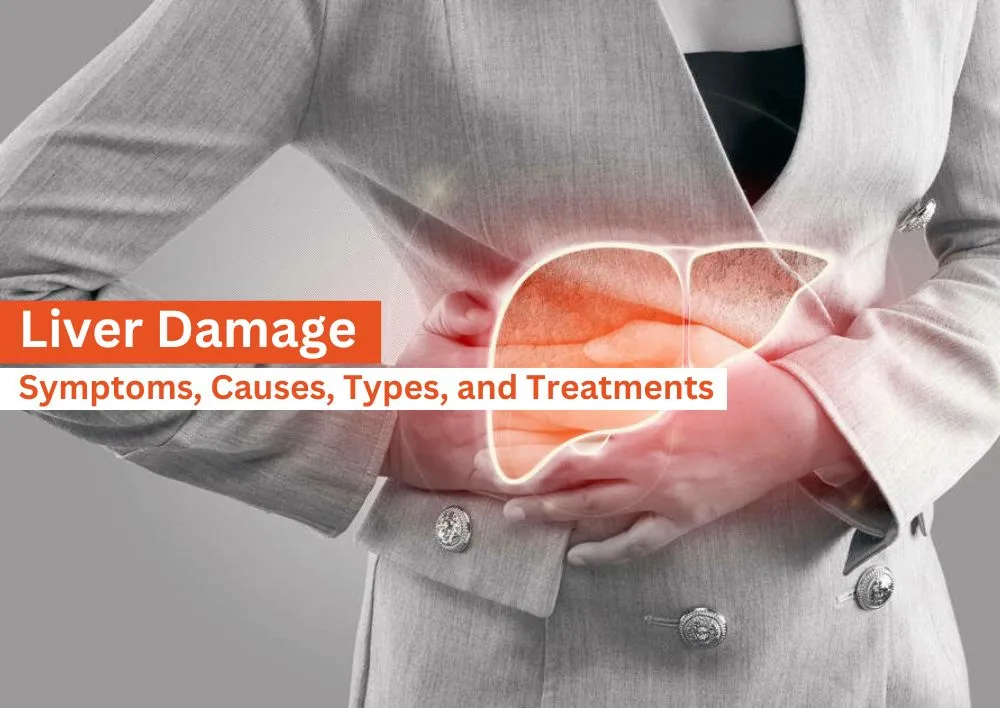Scaling of Teeth: Why It is Important for a Healthy Smile
Summary: Dental scaling is a simple yet powerful way to protect your oral health. It removes plaque and tartar that regular brushing can't, preventing gum disease, bad breath, and tooth loss. This painless procedure, done by a dentist in under an hour, leaves your teeth cleaner and your gums healthier. Slight sensitivity after treatment is normal and temporary. Regular scaling not only maintains your smile but also supports your overall health, making it a smart and affordable preventive step.
Overview
Do your teeth still look yellow even after brushing every day? Do you often have bad breath? If yes, then you might need dental scaling.
Maintaining oral hygiene at home is essential. But sometimes, brushing and flossing are not enough. Over time, sticky bacteria (called plaque) and hardened yellow layers (called tartar) build up on your teeth. This can lead to gum problems and other dental issues.
Scaling of teeth is a simple cleaning treatment that removes all that unwanted stuff from your teeth. In this blog, we will explore everything you need to know about teeth scaling: what it is, how it is done, who needs it, its benefits, risks, aftercare tips, and more.
What is the Scaling of Teeth?
According to the best dental specialists in Gurgaon at Miracles Mediclinic, the Scaling of teeth, also known as dental scaling, is a professional cleaning procedure done by a dentist. It involves removing plaque, tartar (calculus), and bacterial toxins from the surfaces of the teeth and beneath the gum line.
Scaling is required every 6 months. As plaque starts accumulating in areas inaccessible to brushes, it takes 6 months for plaque to block interdental spaces. Before it starts affecting the area around, it is time to clean and remove it again.
Why is the Scaling of Teeth Important?
Even if you brush twice a day, your teeth can still collect plaque and tartar, especially in hard-to-reach areas. This build-up does not just make your teeth look yellow, it can cause serious dental problems over time.
Here is why dental scaling is so important:
1. Removes Plaque and Tartar
Brushing and flossing can not fully remove hardened tartar. Scaling of the teeth safely clears it away, even from below the gumline.
2. Prevents Gum Disease
Tartar build-up is a major cause of gum infections like gingivitis and periodontitis. Regular scaling helps keep your gums healthy and free from inflammation, swelling, and bleeding.
3. Reduces Bad Breath
Plaque and tartar trap bacteria that lead to bad breath. Cleaning your teeth through scaling makes your mouth feel fresh and smell better.
4. Stops Tooth Decay
Tartar can damage the tooth enamel and lead to cavities. Scaling helps protect your teeth and avoid expensive treatments later.
5. Keeps Your Smile Bright
Stains from tea, coffee, or smoking make your teeth look dull. Scaling removes surface stains and restores your natural tooth color.
6. Improves Overall Health
Poor oral hygiene has been linked to various health issues, including heart disease, diabetes, and other health conditions. Scaling lowers the risk by keeping your mouth bacteria-free.
Who Should Get Teeth Scaling?
Anyone can get dental scaling. But it is especially helpful for:
-
People with bleeding gums.
-
People who smoke or drink tea/coffee often.
-
People with bad breath.
-
People who have not visited a dentist in over 6 months.
-
Those with visible yellow deposits on teeth.
-
Even if you have no dental problems, dentists suggest scaling once or twice a year to maintain oral hygiene.
-
Diabetic Patients.
How is Dental Scaling Done?
Dental scaling is a safe, quick, and effective procedure to clean your teeth deeply. It removes harmful plaque and tartar that regular brushing can’t. The entire process usually takes around 30 to 60 minutes, depending on how much tartar has built up on your teeth and the condition of your gums.
Here are the steps of the dental scaling procedure:
Initial Check-up and Examination
-
Before the cleaning starts, the dentist first checks your mouth carefully.
-
A small dental mirror is used to see all areas of your teeth and gums.
-
The dentist checks for plaque, tartar, stains, gum swelling, and signs of infection or gum disease.
-
This step helps the dentist understand how much cleaning is needed and whether any special care is required.
-
This examination is painless and usually takes just a few minutes.
Scaling with Ultrasonic Device
-
Once the examination is done, the dentist starts the cleaning.
-
A high-frequency ultrasonic scaler is used to break and remove tartar.
-
This tool uses vibrations and water spray to loosen and wash away the hardened deposits.
-
You might hear a buzzing or tickling sound, but it is completely normal.
-
The procedure does not hurt, although you may feel slight pressure or sensitivity.
-
The ultrasonic scaler is especially helpful for removing tartar that’s stuck between the teeth and under the gumline.
Manual Cleaning with Hand Instruments
After using the ultrasonic scaler, the dentist may use small hand tools like scalers and curettes.
-
These help in cleaning the areas that are harder to reach, such as behind your molars or below the gumline.
-
This step ensures the complete removal of plaque and tartar from every corner of your mouth.
-
Manual scaling also helps in smoothing the tooth surfaces, which can prevent future plaque build-up.
Polishing the Teeth
Once all the tartar is removed, the dentist will polish your teeth to make them smooth and shiny.
-
A soft rotating brush and a special polishing paste are used.
-
This step removes any remaining stains and gives your teeth a clean, glossy look.
-
Polishing also helps your teeth feel smoother, which means plaque and bacteria are less likely to stick again.
Fluoride Treatment (Optional)
In some cases, especially if you are at a higher risk of cavities, the dentist may apply a fluoride gel or foam after polishing.
-
Fluoride helps to strengthen the enamel and protect your teeth from decay.
-
It is usually left on the teeth for a few minutes and then rinsed off.
-
You may be advised not to eat or drink for 30 minutes afterward for best results.
-
This step is optional but highly recommended for added protection.
How Long Does the Procedure Take?
-
A simple scaling session may take only 30 minutes.
-
If there is a lot of tartar or if your gums are infected, the dentist might need 60 minutes or more.
-
In severe cases of gum disease, you may be asked to come for more than one session.
What are the Benefits of Teeth Scaling?
Dental scaling is not just about making your teeth look clean, it is a preventive treatment that offers several long-term benefits for your oral health. Regular scaling helps you maintain healthy teeth and gums, improves your smile, and even saves you money in the future.
The dental scaling benefits include:
Removes Tartar and Stains
Even with daily brushing and flossing, you can not remove all the plaque and tartar that builds up on your teeth over time.
-
Plaque is a sticky layer of bacteria that forms on your teeth every day.
-
If not removed, plaque hardens into tartar (calculus), which can not be cleaned at home.
-
Tartar not only makes your teeth look yellow but also damages the gums and teeth.
-
Scaling is the only professional method to safely and thoroughly remove this buildup. It also gets rid of surface stains caused by tea, coffee, tobacco, and certain foods.
Prevents Gum Disease
Gum diseases like gingivitis and periodontitis start when bacteria-laden plaque spreads below the gumline.
-
This leads to red, swollen, bleeding gums and, if untreated, may result in loose teeth or tooth loss.
-
Scaling removes the bacteria, plaque, and tartar from both above and below the gumline.
-
It reduces inflammation and allows the gums to heal and reattach to the teeth.
-
By removing the root cause of gum infections, scaling helps keep your gums strong and your smile healthy.
Freshens Your Breath
Bad breath, also known as halitosis, is often caused by bacteria hiding in plaque and tartar. These bacteria release foul-smelling gases that make your breath unpleasant.
-
Regular brushing might not reach these bacteria, especially under the gumline.
-
Scaling removes this hidden bacteria, helping your mouth feel clean and fresh again.
-
Many patients notice an immediate improvement in their breath after scaling.
Makes Your Teeth Look Whiter
Tartar and stains can make your teeth look dull and yellow, even if they are not decayed.
-
Dental scaling followed by polishing removes discoloration caused by surface stains.
-
This gives your teeth a cleaner and brighter impression, restoring your natural smile.
-
While it is not a whitening treatment, many people feel their teeth look whiter and more attractive after a scaling session.
Protects Tooth Enamel
When tartar accumulates on your teeth, it creates rough surfaces that allow more plaque to stick.
-
Over time, this can deteriorate the enamel, leading to sensitivity, cavities, and other problems.
-
By removing these harmful deposits, scaling protects your enamel and helps maintain the strength of your teeth.
-
Preserving your enamel is important because once it wears away, it does not grow back.
Saves You Money in the Long Run
Ignoring your oral hygiene or skipping dental cleanings may seem like no big deal until a bigger problem appears.
-
Treating gum disease, cavities, root infections, or tooth loss can be costly and time-consuming.
-
Regular scaling helps you avoid these issues by preventing them from developing in the first place.
Think of scaling as a small investment that saves you from bigger dental bills later.
Boosts Your Overall Health
Many studies have shown a strong link between oral health and general health.
-
Poor oral hygiene can increase your risk for conditions like heart disease, diabetes, stroke, and even complications during pregnancy.
-
Regular scaling helps remove bacteria from your mouth, reducing the risk of it entering your bloodstream and affecting other parts of your body.
So, by taking care of your teeth, you’re also taking care of your overall well-being.
What are the Teeth Scaling Side Effects?
Teeth scaling is a safe and commonly performed dental procedure. However, like any treatment, it may come with some minor and temporary side effects. These are generally mild and go away on their own within a few days.
Here are some possible side effects of dental scaling:
Tooth Sensitivity
One of the most common side effects after scaling is sensitivity to hot or cold foods and drinks.
-
This happens because scaling removes tartar that may have been covering exposed tooth roots.
-
Your teeth may feel more sensitive for a few days, especially while eating or brushing.
Tip: Use a sensitive toothpaste and avoid very hot or cold foods for a few days to reduce discomfort.
Sore or Bleeding Gums
After scaling, your gums might feel sore, tender, or slightly swollen. Some people may also notice minor bleeding while brushing.
-
This is a natural response as your gums are healing from the inflammation caused by plaque and tartar.
-
The discomfort usually fades within a few days.
Tip: Rinse your mouth with warm salt water to soothe your gums and promote healing.
Mild Pain or Discomfort
Some people feel slight pain or discomfort in their teeth or gums after the procedure.
-
This is more common if there is a lot of tartar or if deep cleaning is done.
-
The soreness typically lasts only 1–3 days.
Tip: You can take a mild pain reliever as recommended by your dentist.
Gum Recession Appearance
Once tartar is removed, you may notice that your teeth appear longer than before.
-
This is not caused by scaling but is due to gum recession that was hidden by tartar.
-
Scaling only makes the existing condition more visible.
Tip: Your dentist may suggest treatment or regular check-ups if gum recession is advanced.
Loosened Teeth
In some rare cases, teeth may feel slightly loose after scaling.
-
This usually happens when advanced gum disease has already damaged the bone supporting your teeth.
-
Removing tartar allows teeth to shift slightly as the gums begin to heal.
Tip: Regular follow-ups and proper oral care can help stabilize your teeth.
Minor Bleeding During Procedure
During the scaling process, especially if your gums are already inflamed, there might be some bleeding.
-
This is normal and usually stops quickly.
-
Your dentist will control any bleeding during the procedure.
Tip: Avoid smoking or spicy foods right after scaling to help your gums recover faster.
Aftercare Tips
To take care of your teeth after scaling:
-
Use a soft toothbrush.
-
Avoid hot or cold foods for a day.
-
Don’t eat spicy food just after scaling.
-
Rinse with warm salt water if your gums feel sore.
-
Avoid smoking or drinking alcohol for 24 hours.
-
Keep brushing and flossing daily.
When to Visit a Dentist?
Consult your dentist if:
-
Your gums bleed while brushing.
-
Your breath smells bad often.
-
You see yellow or black deposits near your gums.
-
Your last dental cleaning was more than six months ago.
Conclusion:
Scaling of teeth is not just about a cleaner smile, it is about keeping your gums and teeth healthy for life. Brushing and flossing are important, but scaling gives your mouth that deep clean it needs from time to time. So if your teeth feel rough, look yellow, or your gums are bleeding, don’t ignore the signs and consult a dentist near you for preventive care.
Frequently Asked Questions
The cost depends on your location and the facilities at the clinic.
-
Basic Scaling: Rs. 800 to Rs. 2,000
-
Scaling + Polishing: Rs. 1,200 to Rs. 2,500
-
Deep Cleaning: Rs. 2,000 to Rs. 5,000
Yes, dental scaling is good for removing plaque, tartar, and stains to keep your teeth and gums healthy.
Dental polishing is a procedure done after scaling to smooth the teeth's surface and give them a shiny, clean finish.
No, scaling does not damage teeth; it helps prevent gum disease and tooth decay when done by a professional.
Not really, but some people may feel mild sensitivity or soreness for a short time afterward.
You can’t do professional scaling at home, but regular brushing, flossing, and using mouthwash help prevent tartar buildup.













Was the information useful?
0 0